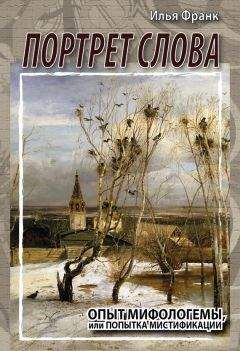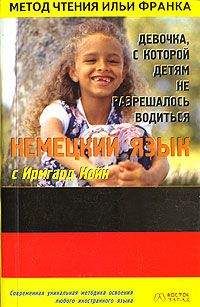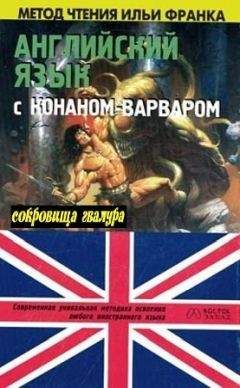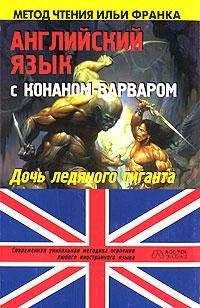Илья Франк - Английский язык с Э. Хемингуэем. Старик и море
Все авторские права соблюдены. Напишите нам, если Вы не согласны.
Описание книги "Английский язык с Э. Хемингуэем. Старик и море"
Описание и краткое содержание "Английский язык с Э. Хемингуэем. Старик и море" читать бесплатно онлайн.
When they reached the old man's shack (когда они дошли до хижины старика; to reach — протягивать; достигать) the boy took the rolls of line in the basket (мальчик взял мотки лесы в корзине) and the harpoon (и гарпун) and gaff (и багор) and the old man carried the mast with the furled sail on his shoulder (а старик взвалил мачту с обмотанным вокруг нее парусом на плечи).
"Do you want coffee (хочешь кофе)?" the boy asked.
"We'll put the gear in the boat and then get some (мы отнесем: «положим» вещи в лодку, а потом выпьем кофе).”
They had coffee from condensed milk cans (они выпили кофе из консервных банок от сгущенного молока; to condense — сгущать, уплотнять; condense milk — сгущенное молоко) at an early morning place that served fishermen (в заведении, которое открывалось очень рано и обслуживало рыбаков).
condense [kqn'dens], basket ['bRskIt], coffee ['kOfI]
They walked down the road to the old man's shack and all along the road, in the dark, barefoot men were moving, carrying the masts of their boats.
When they reached the old man's shack the boy took the rolls of line in the basket and the harpoon and gaff and the old man carried the mast with the furled sail on his shoulder.
"Do you want coffee?" the boy asked.
"We'll put the gear in the boat and then get some.
They had coffee from condensed milk cans at an early morning place that served fishermen.
"How did you sleep old man (как ты спал, старик)?" the boy asked. He was waking up now although it was still hard for him to leave his sleep (он уже почти проснулся: «постепенно просыпался», хотя ему все еще трудно было расстаться со сном).
"Very well (очень хорошо), Manolin," the old man said. "I feel confident today (я уверен в себе сегодня = сегодня я верю в удачу)."
"So do I (и я тоже)," the boy said. "Now I must get your sardines and mine and your fresh baits (сейчас я должен принести твои сардины и мои, и твою свежую наживку). He brings our gear himself (он таскает наши снасти сам). He never wants anyone to carry anything (он не любит, когда его вещи носят другие: «он никогда не хочет, чтобы кто-то другой нес что-нибудь»)."
"We're different (мы разные)," the old man said. "I let you carry things when you were five years old (я позволил тебе носить вещи, когда тебе было пять лет)."
"I know it," the boy said. "I'll be right back (я сейчас вернусь). Have another coffee (выпей еще кофе). We have credit here (у нас здесь кредит = нам здесь дают в долг)."
He walked off (он ушел), bare-footed on the coral rocks (босиком по коралловым рифам: «камням»; rock — подводный камень, риф), to the ice house where the baits were stored (к холодильнику, где хранилась наживка).
confident ['kOnfIdqnt], coral ['kOrql], store [stL]
"How did you sleep old man?" the boy asked. He was waking up now although it was still hard for him to leave his sleep.
"Very well, Manolin," the old man said. "I feel confident today."
"So do I," the boy said. "Now I must get your sardines and mine and your fresh baits. He brings our gear himself. He never wants anyone to carry anything."
"We're different," the old man said. "I let you carry things when you were five years old."
"I know it," the boy said. "I'll be right back. Have another coffee. We have credit here."
He walked off, bare-footed on the coral rocks, to the ice house where the baits were stored.
The old man drank his coffee slowly (старик медленно пил свой кофе). It was all he would have all day (это все, что у него будет /из пищи/ на протяжении всего дня) and he knew that he should take it (и он знал, что ему следует взять это = напиться кофе как следует). For a long time now eating had bored him and he never carried a lunch (уже долгое время еда наскучила ему, и он никогда не брал с собой /в море/ завтрак; to bore — надоедать, докучать). He had a bottle of water in the bow of the skiff (у него была бутылка воды на носу лодки; bow — нос корабля) and that was all he needed for the day (и это все, что было ему нужно на весь день).
The boy was back now with the sardines (мальчик уже вернулся с сардинами) and the two baits wrapped in a newspaper (и двумя живцами, завернутыми в газету) and they went down the trail to the skiff (и они спустились вниз по тропинке к лодке; trail — след; тропа), feeling the pebbled sand under their feet (ощущая мелкий гравий под ногами; pebble — галька, гравий; sand — песок), and lifted the skiff and slid her into the water (приподняли лодку и сдвинули ее в воду; to slide — скользить; сдвинуть что-л. скользящее).
"Good luck old man (удачи, старик)."
"Good luck," the old man said. He fitted the rope lashings of the oars onto the thole pins (он закрепил веревки весел на колышки уключин; thole pin — уключина) and, leaning forward against the thrust of the blades in the water (и, налегая на весла: «подаваясь вперед против давления лопастей весел в воде»; blade — лопасть), he began to row out of the harbour in the dark (он вывел лодку: «начал грести» из гавани в темноте). There were other boats from the other beaches going out to sea (были другие лодки, выходящие в море с других берегов) and the old man heard the dip and push of their oars (и старик слышал, как погружались и выталкивались их весла; to dip — мокать, погружать /в воду/; to push — толкать) even though he could not see them now the moon was below the hills (хотя он и не мог видеть их сейчас, когда луна скрылась за холмами).
bore [bL], bow [bau], trail [treIl]
The old man drank his coffee slowly. It was all he would have all day and he knew that he should take it. For a long time now eating had bored him and he never carried a lunch. He had a bottle of water in the bow of the skiff and that was all he needed for the day.
The boy was back now with the sardines and the two baits wrapped in a newspaper and they went down the trail to the skiff, feeling the pebbled sand under their feet, and lifted the skiff and slid her into the water.
"Good luck old man."
"Good luck," the old man said. He fitted the rope lashings of the oars onto the thole pins and, leaning forward against the thrust of the blades in the water, he began to row out of the harbour in the dark. There were other boats from the other beaches going out to sea and the old man heard the dip and push of their oars even though he could not see them now the moon was below the hills.
Sometimes someone would speak in a boat (иногда кто-нибудь в лодках разговаривал). But most of the boats were silent (но большинство лодок были безмолвны) except for the dip of the oars (за исключением звуков опускания в воду весел). They spread apart after they were out of the mouth of the harbour (они рассеивались в разные стороны после того, как выходили из бухты; to spread — распространяться; mouth — устье, вход) and each one headed for the part of the ocean where he hoped to find fish (и каждая направлялась в ту часть океана, где надеялась найти рыбу). The old man knew he was going far out (старик знал, что уйдет далеко /от берега/) and he left the smell of the land behind (и он оставил запах земли позади) and rowed out into the clean early morning smell of the ocean (и греб в чистый утренний запах океана). He saw the phosphorescence of the Gulf weed in the water (он видел свечение саргассовых водорослей в воде; gulfweed — саргассова водоросль; gulf — залив; weed — сорная трава, сорняк; водоросль) as he rowed over the part of the ocean that the fishermen called the great well (пока греб над той частью океана, которую рыбаки называли «великим колодцем») because there was a sudden deep of seven hundred fathoms where all sorts of fish congregated (потому что дно там круто опускается на семьсот морских саженей, и там собираются всевозможные виды рыб; fathom — морская сажень /182 см/; to congregate — собираться, сходиться) because of the swirl the current made against the steep walls of the floor of the ocean (из-за водоворота, который создает течение, наталкиваясь на крутые стены морского дна). Here there were concentrations of shrimp and bait fish (здесь скапливаются креветки и рыба для наживки = мелкая рыбешка) and sometimes schools of squid in the deepest holes (а иногда и стаи кальмаров в глубочайший дырах = на самой большой глубине; school — школа; стая, косяк /рыб/) and these rose close to the surface at night where all the wandering fish fed on them (и они: «все это» поднимаются на поверхность ночью, где все блуждающие рыбы ими питаются; to rise; to feed).
phosphorescence [fOsfq'resqns], congregate ['kONgrIgeIt], swirl [swWl]
Sometimes someone would speak in a boat. But most of the boats were silent except for the dip of the oars. They spread apart after they were out of the mouth of the harbour and each one headed for the part of the ocean where he hoped to find fish. The old man knew he was going far out and he left the smell of the land behind and rowed out into the clean early morning smell of the ocean. He saw the phosphorescence of the Gulf weed in the water as he rowed over the part of the ocean that the fishermen called the great well because there was a sudden deep of seven hundred fathoms where all sorts of fish congregated because of the swirl the current made against the steep walls of the floor of the ocean. Here there were concentrations of shrimp and bait fish and sometimes schools of squid in the deepest holes and these rose close to the surface at night where all the wandering fish fed on them.
In the dark the old man could feel the morning coming (в темноте старик чувствовал, как наступает утро) and as he rowed he heard the trembling sound as flying fish left the water (и пока он греб, он слышал дребезжащий звук, с которым летучая рыба покидала воду; to leave) and the hissing that their stiff set wings made as they soared away in the darkness (и свист, с которым их жесткие крылья рассекали воздух: «парили» в темноте; hiss — шипение, свист; stiff — жесткий, неэластичный; to soar — парить). He was very fond of flying fish as they were his principal friends on the ocean (он очень любил летучих рыб, потому как они были его главными друзьями в океане; to be fond of — любить, относиться с душевной теплотой; principal — главный, основной). He was sorry for the birds (ему было жалко птиц), especially the small delicate dark terns that were always flying and looking and almost never finding (особенно утонченных темных крачек, которые всегда летали и искали, и почти никогда не находили; delicate — изысканный, тонкий; tern — крачка /птица/), and he thought, the birds have a harder life than we do (у птиц жизнь труднее, чем у нас) except for the robber birds and the heavy strong ones (если не считать стервятников и больших сильных птиц; robber — грабитель; to rob — грабить). Why did they make birds so delicate and fine (зачем птиц создали настолько утонченными и прекрасными) as those sea swallows (как те морские ласточки) when the ocean can be so cruel (если океан бывает так жесток)? She is kind and very beautiful (он /океан/: «она» — добрый и очень красивый). But she can be so cruel and it comes so suddenly (но он может быть таким жестоким, и это происходит так неожиданно) and such birds that fly, dipping and hunting, with their small sad voices are made too delicately for the sea (а такие птицы, которые летают, ныряя и охотясь, с их слабыми грустными голосами, слишком хрупки для моря).
principal ['prInsqpl], delicate ['delIkIt], tern [tWn]
In the dark the old man could feel the morning coming and as he rowed he heard the trembling sound as flying fish left the water and the hissing that their stiff set wings made as they soared away in the darkness. He was very fond of flying fish as they were his principal friends on the ocean. He was sorry for the birds, especially the small delicate dark terns that were always flying and looking and almost never finding, and he thought, the birds have a harder life than we do except for the robber birds and the heavy strong ones. Why did they make birds so delicate and fine as those sea swallows when the ocean can be so cruel? She is kind and very beautiful. But she can be so cruel and it comes so suddenly and such birds that fly, dipping and hunting, with their small sad voices are made too delicately for the sea.
Подписывайтесь на наши страницы в социальных сетях.
Будьте в курсе последних книжных новинок, комментируйте, обсуждайте. Мы ждём Вас!
Похожие книги на "Английский язык с Э. Хемингуэем. Старик и море"
Книги похожие на "Английский язык с Э. Хемингуэем. Старик и море" читать онлайн или скачать бесплатно полные версии.
Мы рекомендуем Вам зарегистрироваться либо войти на сайт под своим именем.
Отзывы о "Илья Франк - Английский язык с Э. Хемингуэем. Старик и море"
Отзывы читателей о книге "Английский язык с Э. Хемингуэем. Старик и море", комментарии и мнения людей о произведении.










